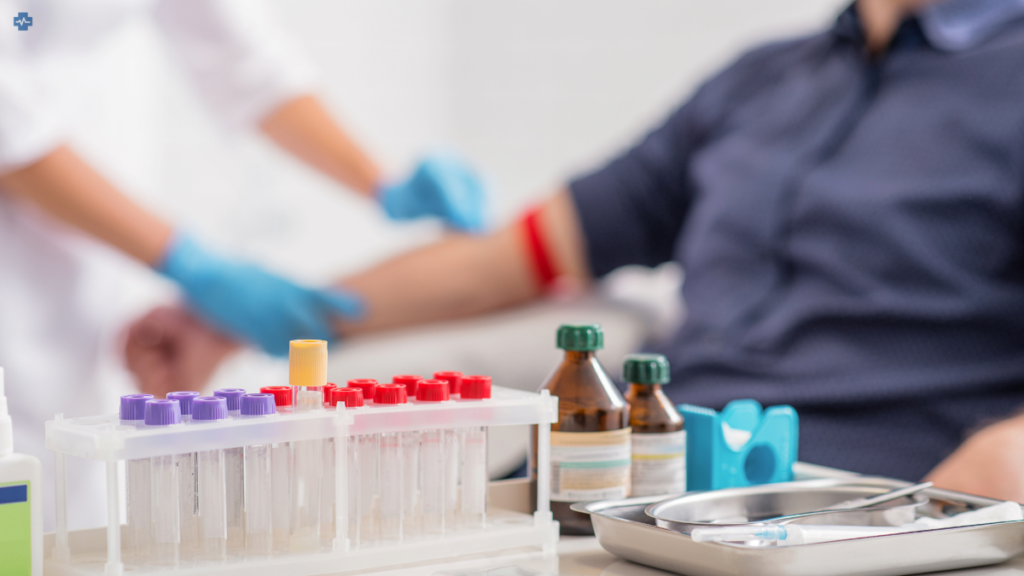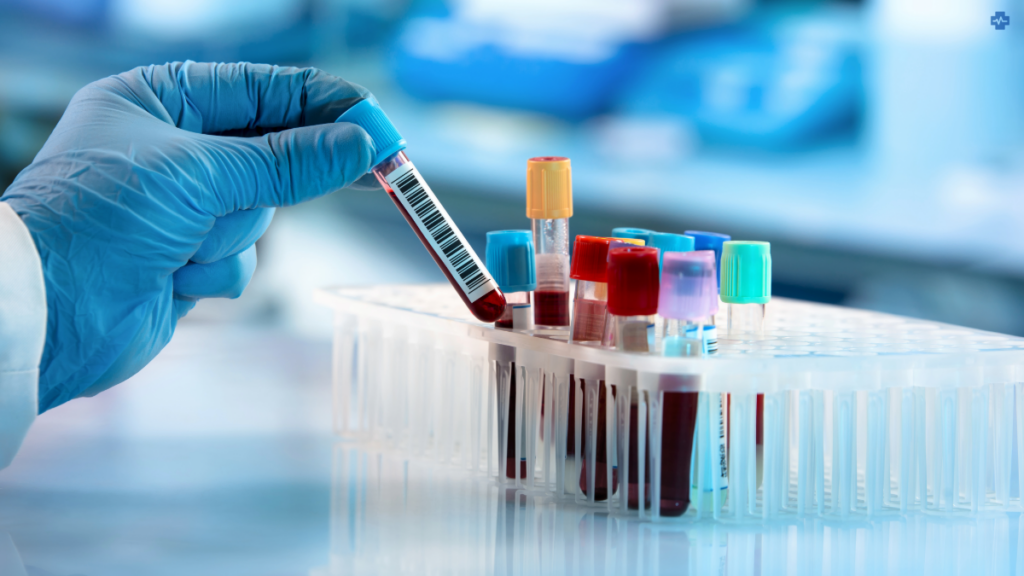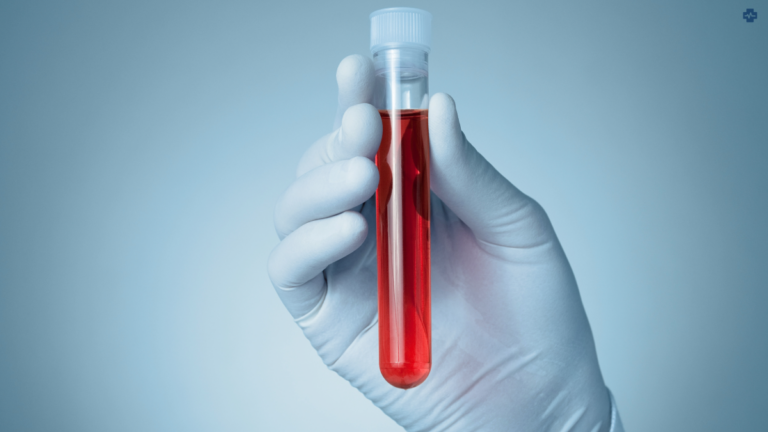It might be slightly ironic but it is true. Few diagnostic tools are as powerful and revealing as the humble blood test. A simple pinprick can unlock a treasure trove of information about your health. You can get insights that range from detecting infections to predicting the risk of chronic diseases. But it was not always like that.
The history of blood tests dates back to the 17th century when early scientists began exploring the properties of blood. In 1628, William Harvey’s discovery of blood circulation laid the groundwork for understanding how blood functions in the body. However, it wasn’t until the 19th century that significant advancements were made.
In 1851, German physician Karl von Vierordt developed a method to measure blood cell counts, marking one of the first quantitative blood tests. This was followed by the invention of the haemocytometer in 1879 by Louis-Charles Malassez, which allowed for more accurate counting of blood cells. These early developments were crucial in diagnosing conditions like anaemia and infections. They paved the way for modern haematology.
The 20th century saw rapid progress in blood testing technology. Mainly driven by advancements in biochemistry and medical instrumentation. In the 1920s, the introduction of automated blood analysers revolutionised the field. It enabled faster and more precise results. The development of the complete blood count (CBC) test soon became a standard diagnostic tool. It is providing detailed information about red and white blood cells, haemoglobin and platelets and it is used until today.
By the mid-20th century, blood tests expanded to include biochemical markers. For example things such as glucose and cholesterol levels. Those helped in the diagnosis of diabetes and cardiovascular diseases. Today, blood tests are an essential part of medical diagnostics. Innovations like genetic testing and liquid biopsies offer even deeper insights into disease.
Blood testing has come a long way since its early days. It has been evolving from basic tests to sophisticated procedures that can identify biomarkers with remarkable precision. We could not literally live as long, without it.
What Blood Tests Can Tell Us

Blood tests are incredibly versatile. They are capable of measuring a wide range of substances and markers in the blood. A complete blood count (CBC), for instance, provides a snapshot of your overall health. It measures red and white blood cells, hemoglobin and platelets. This test can reveal conditions like anemia, infections and even certain cancers. A lipid panel assesses cholesterol levels, helping to evaluate the risk of heart disease. Metabolic panels measure electrolytes, glucose and kidney function. They are great for offering insights into metabolic health and potential issues like diabetes or kidney disease. Specialised tests can detect disease-specific markers, such as troponin for heart attacks or PSA for prostate cancer. The latter has been life-saving for many men.
Blood tests are often the first step in diagnosing a wide range of health conditions. For example, elevated white blood cell counts can indicate an infection. Abnormal glucose levels may point to diabetes. Blood tests can also detect autoimmune diseases. They can find lupus or rheumatoid arthritis, by identifying specific antibodies. In the case of cancer, tumor markers in the blood can provide early clues, which are used for further investigation. There are many real-life examples. A routine blood test might reveal elevated liver enzymes, leading to the diagnosis of hepatitis, or low iron levels, uncovering anemia.
Monitoring and Management of Chronic Conditions
For individuals with chronic conditions, regular blood tests are essential for monitoring disease progression and adjusting treatment plans. Diabetics, for instance, rely on HbA1c tests to assess long-term blood sugar control. Patients with hypertension may undergo regular kidney function tests to ensure their condition is well-managed. Blood tests also play a critical role in managing conditions like HIV. Viral load and CD4 counts are monitored to evaluate the effectiveness of antiretroviral therapy. The real-time data provided by blood tests enables healthcare providers to make better decisions, optimise treatment and improve patient outcomes. It is remarkable how much they achieve.
Preventive Healthcare and Wellness

Blood tests are not just for diagnosing and managing diseases. They are the cornerstone of preventive healthcare. Baseline blood tests, often conducted during routine check-ups, establish a reference point for future comparisons. These tests can identify risk factors for diseases like heart disease or diabetes long before symptoms appear. Thus allowing for early treatment. For example, elevated cholesterol levels might prompt lifestyle changes or medication to prevent a heart attack. Blood tests can also detect vitamin deficiencies, such as low vitamin D or B12. By catching potential issues early, blood tests help us to take proactive steps for maintaining our health.
For many, the thought of a blood draw can be anxiety-inducing. But better understanding the process can help alleviate fears. Typically, a healthcare professional will draw blood from a vein in your arm using a sterile needle. The procedure is quick and mostly painless. It is often taking less than five minutes. Discomfort is minimal. In some cases, capillary blood samples, through a finger prick, may be used for specific tests. Once collected, the blood is sent to a laboratory. There it is analysed using advanced equipment. The results are then interpreted by healthcare providers, who use them to offer diagnosis and treatment.
Interpreting blood test results can be complex. Often “normal” ranges vary depending on factors like age, sex, and overall health. So its important to discuss your results with a healthcare provider, who can explain what they mean in the context of your individual health. For instance, a slightly elevated white blood cell count might be normal for someone recovering from an infection but concerning in another context. And it’s tempting to self-diagnose using online resources, but blood test results should always be interpreted by a professional to avoid unnecessary worry or misinterpretation. And its very easy to get it wrong if you dont have a medical diploma.
Most Common Blood Tests
| Test Name | What it Measures | Common Uses |
|---|---|---|
| Complete Blood Count (CBC) | Red blood cells (RBCs), white blood cells (WBCs), platelets, hemoglobin, hematocrit | Diagnosing anemia, infections, clotting disorders, some cancers; monitoring overall health |
| Basic Metabolic Panel (BMP) | Glucose, calcium, electrolytes (sodium, potassium, chloride), kidney function markers (BUN, creatinine) | Assessing kidney function, electrolyte balance, blood sugar levels, screening for diabetes and other metabolic disorders |
| Comprehensive Metabolic Panel (CMP) | Includes all BMP components plus liver function tests (ALT, AST, bilirubin, alkaline phosphatase) and proteins (albumin, total protein) | Evaluating liver and kidney function, nutritional status; screening for a wider range of metabolic disorders |
| Lipid Panel | Cholesterol (total, HDL, LDL), triglycerides | Assessing risk for cardiovascular disease |
| Thyroid Panel | Thyroid hormones (TSH, T3, T4) | Diagnosing thyroid disorders (hypothyroidism, hyperthyroidism) |
| Hemoglobin A1c (HbA1c) | Average blood sugar levels over the past 2-3 months | Diagnosing and monitoring diabetes |
| Liver Function Tests (LFTs) | ALT, AST, bilirubin, alkaline phosphatase | Evaluating liver health; diagnosing liver diseases (hepatitis, cirrhosis) |
| Kidney Function Tests | BUN, creatinine, eGFR (estimated glomerular filtration rate) | Assessing kidney function; diagnosing kidney disease |
| Electrolyte Panel | Sodium, potassium, chloride, bicarbonate | Assessing electrolyte balance, which is crucial for many bodily functions |
| Cardiac Enzymes (Troponin) | Troponin (a protein released when heart muscle is damaged) | Diagnosing heart attacks and other heart conditions |
| Coagulation Tests (PT/INR) | Measures how well the blood clots | Monitoring anticoagulant therapy (e.g., warfarin); assessing risk for bleeding disorders |
| C-Reactive Protein (CRP) | A marker of inflammation in the body | Assessing risk for cardiovascular disease and other inflammatory conditions |
| Erythrocyte Sedimentation Rate (ESR) | Another marker of inflammation | Helping diagnose conditions like rheumatoid arthritis and other inflammatory diseases |
| Vitamin D | Measures vitamin D levels | Assessing vitamin D deficiency, which can affect bone health and other functions |
| PSA (Prostate-Specific Antigen) | A protein produced by the prostate gland | Screening for prostate cancer (in men) |
Advances in Blood Testing Technology
The field of blood testing is continually evolving. Innovations that promise to make testing faster, more accurate, and more accessible are always emerging. Point-of-care diagnostics allow for immediate results, enabling rapid decision-making in clinical settings. Liquid biopsies, which analyse circulating tumor DNA in the blood are revolutionising cancer detection and monitoring. Meanwhile, at-home testing kits are helping us to take charge of our health with convenience and relative privacy.
Looking ahead, the future of blood testing is brimming with possibilities. Researchers are discovering new biomarkers that could enable earlier detection of diseases like Alzheimer’s or Parkinson’s. Artificial intelligence is being harnessed to analyse complex blood test data. It could potentially uncover patterns that human clinicians might have missed. The rise of personalised medicine promises treatments tailored to an individual’s unique genetic and biochemical profile. Blood tests are playing a central role in this paradigm shift. As technology continues to advance, blood tests may become even more integral to healthcare. Faster, more accurate and more insightful.
A Vital Tool for Health
Blood tests are a window into the inner workings of our bodies. They reveal many clues about our health. From detecting infections to managing chronic conditions, blood tests are a cornerstone of modern medicine. As technology advances, their potential to transform healthcare continues to grow. If you haven’t had a blood test recently, consider a general test. After all, a simple pinprick could be the key to a much healthier future.

